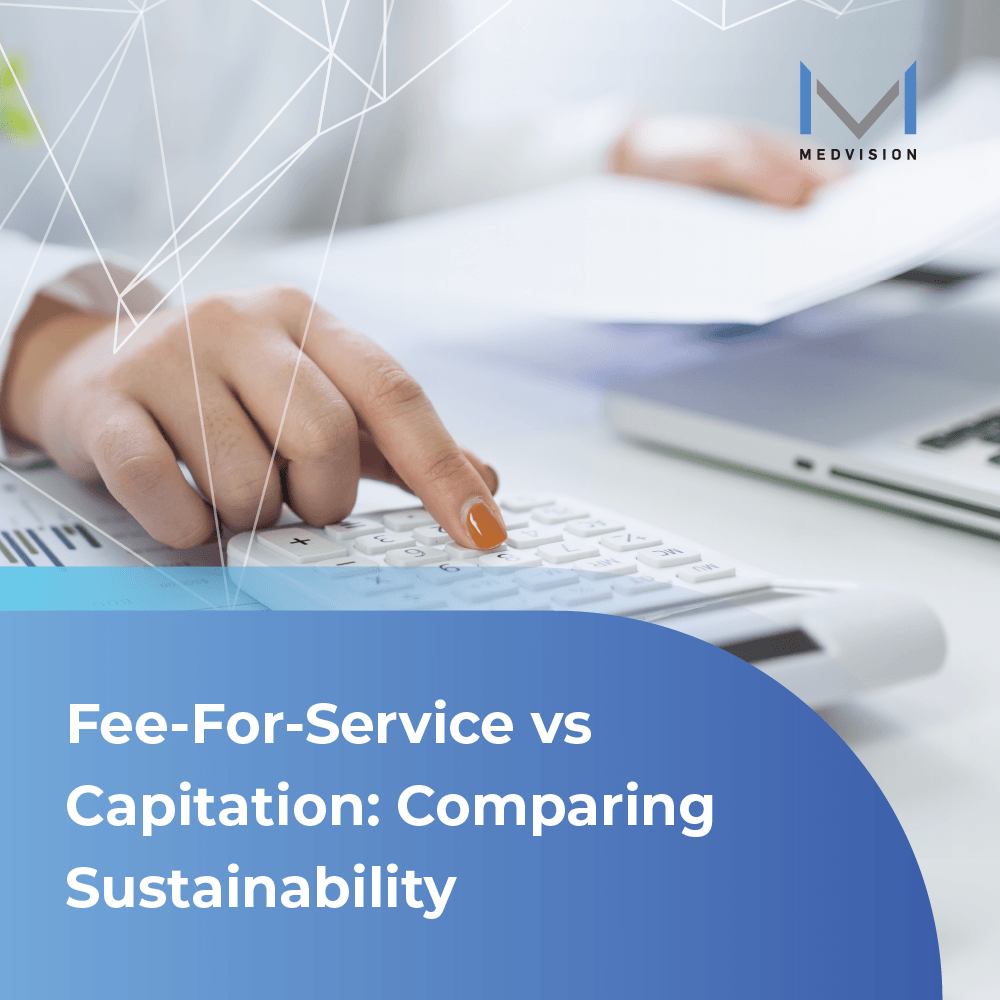How Value-Based Care Overtook the Fee for Service Model
Fee for service (FFS) is, without a doubt, the most traditional model for healthcare payment. Under this model, healthcare professionals and providers receive payments based on the number of services rendered or procedures performed.
FFS payments are not bundled, with payers being billed for every test performed, each procedure taken, and any treatment required of the patient. This can be under any situation whenever the patient visits a provider, consults healthcare professionals, or gets hospitalized. The FFS system rewards providers for the quantity and volume of services,
regardless of the health outcome.
The Fee for Service Model at a Glance
The FFS model, also known as indemnity plans, offers the most complete independence and flexibility. However, the model is only ideal for patients who are able to afford the high cost. FFS arrangements allow the patient to choose their providers, practices, and hospitals freely with very little intervention from any insurance companies. When patients use this financial settlement scheme to pay the fee for any service given, the out-of-pocket expenses are usually high. Customarily, clients need to pay their healthcare bills in full or in part under this model.

Weighing In on the FFS Model
Despite its apparent drawbacks, many still prefer the FFS arrangement. This is in contrast to many health experts noting that modern medical developments, healthcare structure complications, and population healthcare requirements have severely outdated the FFS model. Industry experts and lawmakers argue that medicinal evolutions compromise the FFS model, with many listing down the pros and cons.
Starting with the perks and benefits of FFS model, here are some of its known advantages:
- Providers are able to offer suitable care recommendations for high-value services
- Providers are in the position to charge health plans at agreed-upon amounts
However, the FFS model has more recognized disadvantages that need to be addressed such as:
- The FFS arrangement does not provide benefits for delivering value-based holistic services
- The model stimulates providers to require unnecessary procedures and tests to generate more revenue
- This particular approach encourages providers to practice defensive medicine to guard themselves against lawsuits
- The traditional FFS system increases overall healthcare costs over time
In fact, the fee for service model has been under some intense scrutiny due to the
overutilization and duplication of services. Further complicating this are overburdened third-party payers involved with health insurance companies or government programs such as Medicare and Medicaid.
The Growing Shift from FFS to Value-Based Care
The fee for service arrangement reimburses providers according to the number of rendered care and treatments, while value-based care concentrates on health outcomes. Providers under value-based care receive reimbursement for the quality of their services and their preventive healthcare management. Preemptive healthcare management involves the proactive inhibition of injuries and diseases by identifying factors earlier to reduce treatment costs.
Value-based care systems are becoming more popular among payers and providers. This can be attributed to monetary benefits constantly aligned with quality care coordination and delivery at the best prices. There is a growing indication that federal determination toward alternative medical payment models is becoming a healthcare requirement. Many medical practitioners have been joining Accountable Care Organizations (ACOs) and
similar entities for quite some time now.
The overall acceptance of the FFS arrangement has been slowly fading, with many policymakers and government agencies favoring value-based care models. Over the past years, FFS arrangements have been declining in popularity due to major concerns. The concerns stem from the possibility of providers rendering substandard patient care, excessive procedures and services, and inflated rates and charges. Healthcare providers are facing medical billing challenges as more healthcare models evolve to focus on value-based care.

Taking Value-Based Care to Higher Levels
Value-based care models are now leading the way toward increased healthcare outcomes. More and more, healthcare organizations are now accepting capitated payments. With this, preemptive and proactive care is increasingly becoming the norm. Healthcare organizations are swiftly taking advantage of this shift by incorporating modern touches into their processes through strategic technological integrations.
For nearly three decades, MedVision has been carefully crafting powerful
value-based administrative healthcare solutions. Designed to optimize healthcare processes from every conceivable angle, MedVision’s QuickCap 7 (QC7) integrates seamlessly into your work processes. Providing intuitive and customizable features, QC7 streamlines and simplifies all your healthcare workflows.
QC7 has supported multiple partners in different healthcare facets, such as ACOs, Direct Contracting Entities (DCEs), Management Services Organizations (MSOs), and more. In fact, QC7 has been their constant companion in strengthening their services through interconnected workflows with
HIPAA-standard encryption. MedVision’s QC7 offers your organization with:
- Secure claims management control
- Robust authorizations/referral capabilities
- Effortless eligibility administration
- Strong contracting functions
- Effective credentialing operations
Without a doubt, QC7 is the ultimate tool for you as you advance the healthcare industry through positive patient outcomes. Be our value-based care partner and boost your organizational value now.
References:
Explore Related Blogs
Recently published articles
Keep in touch
Subscribe to get the latest update
Than you!
You have successfully subscribe to our blog updtes!
Please try again later
Trending topics
Upcoming Events and News
Connected Healthcare
HITRUST Risk-Based 2-Year Certification Achiever
The Health Information Trust (HITRUST) is a standards organization dedicated to security, privacy, and risk management. They developed the HITRUST Common Security Framework (CSF), which assists organizations in maintaining a comprehensive and secure approach to HIPAA compliance and managing risks. HITRUST is widely recognized as the benchmark in data security and privacy.
Certified Member of HCAA
The Health Care Administrators Association is the nation's largest nonprofit trade association for third-party administrators, stop loss insurance carriers, managing general underwriters, audit firms, medical managers, technology organizations, pharmacy benefit managers, brokers/agents, human resource managers, and health care consultants. HCAA has spearheaded the change of self-funding for more than 35 years.
Share and post page directly to social media.
Ready to get started?
Call us @ 847 - 222 - 1006
LINKS
GET IN TOUCH
3233 N. Arlington Heights Rd.,
Suite 307, Arlington Heights, IL 60004
Phone:
847-222-1006
Fax: 847-222-1066
STAY INFORMED
Subscribe to our blog updates!
Blog Subscription
Than you!
You have successfully subscribe to our blog updates!
Oops, there was an error in sending your message. Please try again later
LINKS
GET IN TOUCH
3233 N. Arlington Heights Rd.,
Suite 307, Arlington Heights, IL 60004
Phone :
847-222-1006
Fax :
847-222-1066
STAY INFORMED
Subscribe to our blog updates!
Blog Subscription
Than you!
You have successfully subscribe to our blog updates!
Oops, there was an error in sending your message. Please try again later
Medvision | All Rights Reserved.













